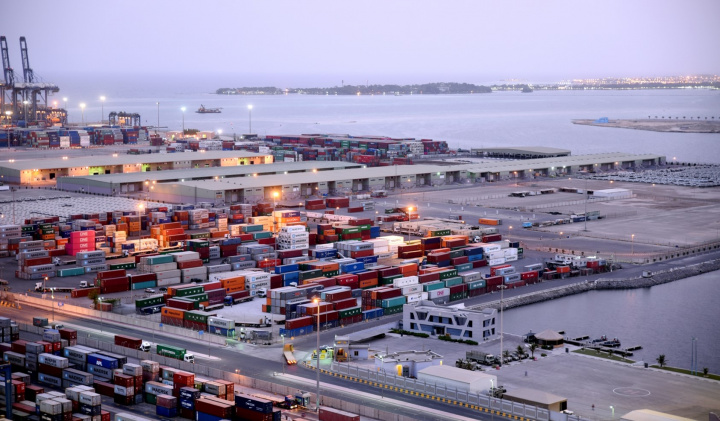The UK is reiterating that it is prepared to take direct military action in response to what Defence Secretary Grant Shapps called an “incredibly serious” situation in the Red Seas. Shapps is speaking out after yesterday’s escalation by the Houthi rebels and in advance of an expected joint statement from the U.S. and the UK.
Shapps points out in an op-ed published in The Daily Telegraph in London on December 31 that the UK has already acted. He said the mid-December shoot down of an aerial target by HMS Diamond, one of the UK’s most sophisticated destroyers, was the first time in 30 years the Royal Navy had “shot down a target in anger in more than 30 years.” HMS Diamond was given a quick turnaround in November moving from the task force with HMS Queen Elizabeth and arriving in mid-December in the Red Sea. The vessel deployed its Sea Viper missile system taking down a suspected drone shortly after joining the patrols in the region.
“As HMS Diamond illustrated earlier in the month, we are willing to take direct action, and we won’t hesitate to take further action to deter threats to freedom of navigation in the Red Sea,” wrote Shapps. “The Houthis should be under no misunderstanding: we are committed to holding malign actors accountable for unlawful seizures and attacks.”
While the U.S. continues to publicly stress not widening the conflict in the Middle East, U.S. CENTCOM confirmed that the Houthis had fired on U.S. forces on Sunday during the effort to defend the Maersk Hangzhou. The U.S. said the small boats approaching the containership shot at the U.S. helicopters and the U.S. returned fire killing the crews and destroying three of the four small crafts. The Houthis later issued a confirming statement saying 10 members were dead. In the past, the U.S. has been careful to say the drones and missiles were near the U.S. warships but never directly acknowledged that they were targeting U.S. forces.
“We are going to do what we have to do to protect shipping,” White House national security spokesperson John Kirby said speaking on the Sunday TV news commentary shows. The New York Times reports the U.S. Defense Department has presented President Joe Biden with plans to attack Houthi bases. It is believed the U.S. would target the launch sites for the missiles and drones. Seven years ago, in 2016 the U.S. fired cruise missiles at Houthi sites to destroy radar installations after the rebels had shot at a U.S. warship.
The UK and the U.S. are reported to be reviewing a range of options as the next step in the efforts to stop the assaults in the Red Sea. After a few days lull when the international coalition was launched, the rebels resumed their attacks which as Shapps wrote in his piece in The Daily Telegraph has forced a dozen international companies including BP and Maersk to suspend Red Sea transits. Shapps highlights the 5,000-mile detour is causing lengthy delays, disruptions, and “insurance costs for international shipping have already increased tenfold since early December.”
The Daily Telegraph speculates that the UK might redeploy HMS Lancaster which is on long-term assignment in the Persian Gulf and Indian Ocean into the Red Sea. It would expand capabilities with a different missile system from HMS Diamond capable of targeting small, fast-moving boats such as the ones the Houthis used yesterday against the Maersk Hangzhou.
Iran responded to the growing tensions and the Western assertions that Iran is enabling the attacks by highlighting it was sending a destroyer into the Red Sea. “The Alborz destroyer, operating as a military vessel of the 94th flotilla of the Iranian Navy, crossed the Bab el-Mandeb Strait and entered the Red Sea on Monday,” the Tasmin News Agency announced today, January 1. Under the guise of protecting shipping against piracy, Iran has been operating in the areas around Yemen for 15 years. Experts, however, point out the vessel is more than 50 years old. The U.S. did not confirm the movement of the Iranian vessel into the Red Sea.
Source: The Maritime Executive






